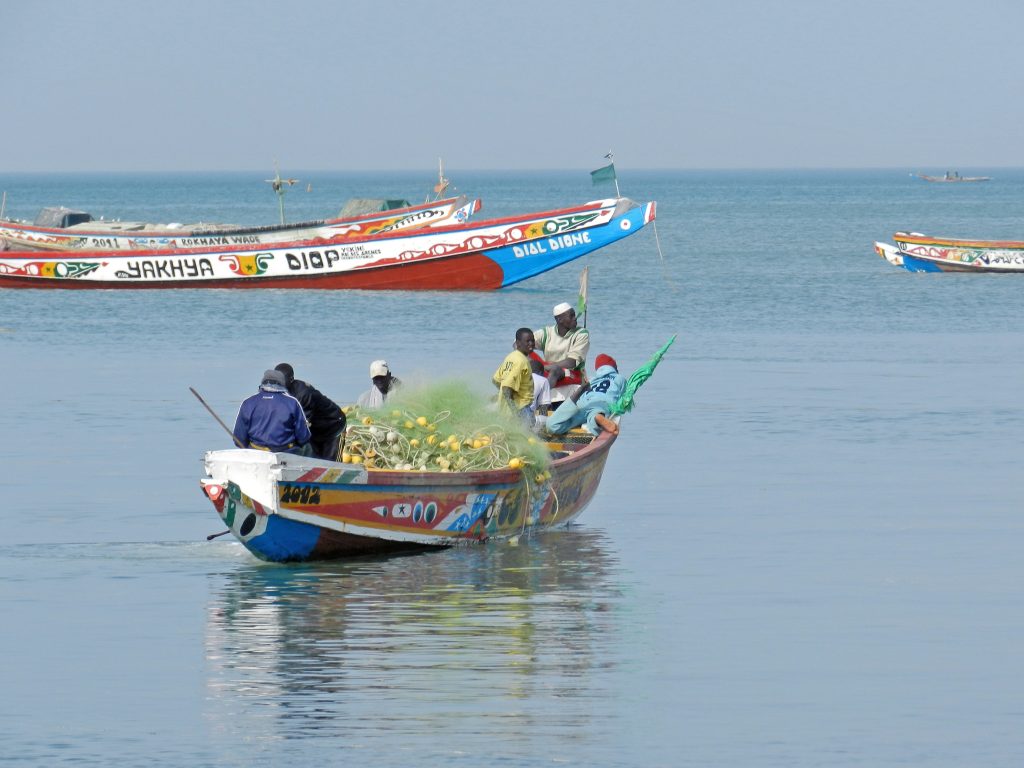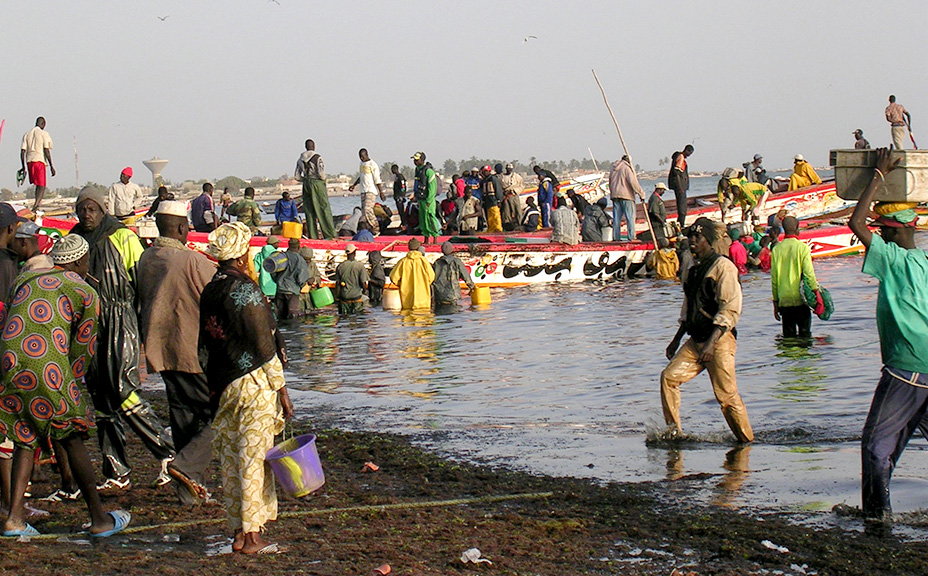
CRC leads USAID/COMFISH Plus, a two-year project (2017-2018) building on the =achievements of the five-year USAID/COMFISH project: Collaborative Management for a Sustainable Fisheries Future in Senegal. The initiative is supported by the U.S. Agency for International Development, Senegal, and is implemented by the CRC with national and local government, NGO, academic, and private sector partners as well as fisheries stakeholders. The projects’ long-term goal (20-30 years) is to prevent overfishing and ensure that marine fisheries in Senegal provide: (1) a sustainable source of high-quality protein for the nation; (2) help improve the quality of life in artisanal fishing communities; and (3) maintain the productive capacity of marine and coastal ecosystems to support
the well-being and natural wealth of the people of Senegal. It’s nearer term goal is to support the Government of Senegal in its efforts to achieve reform in the country’s marine fisheries sector to sustain productivity and enhance the participation of artisanal fisherman and women in fishery decision making and management in accordance with the Sector Policy Letter for the Development of Fisheries and Aquaculture of 2008 and revised in 2016.
USAID/COMFISH succeeded in facilitating participatory development of rules and regulations in fisheries, catalyzing collaboration and relationships between governmental and fishery organizations, advancing fisheries monitoring and research for improved management, and engaging in institutional and stakeholder capacity development.
The USAID/COMFISH Plus project contributes to achieve the following three major results:
1. Institutional and stakeholder capacity strengthened at all levels to implement an ecosystem based, co-management approach towards sustainable fisheries, taking into account climate change impacts in the fisheries sector.
2. Governance strategies, policies and best practices identified, tested, assessed and applied to build ecosystem resilience to threats to biodiversity conservation and climate risk.
3. Enhanced social and economic benefits to artisanal fishing communities provide incentives to a continued sustainable fisheries agenda.



